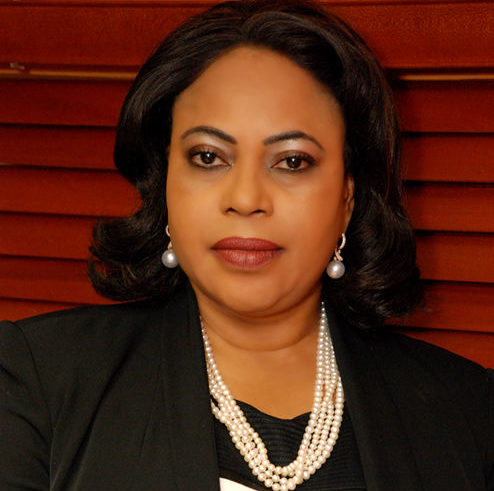
The Seaport Terminal Operators Association of Nigeria (STOAN) and the Maritime Workers Union of Nigeria (MWUN) have signed the Collective Bargaining Agreement (CBA), which seeks to improve the welfare of dockworkers in the country.
The newly signed agreement, which is for a period of two years, is intended to ensure and sustain industrial harmony in the industry as it encompasses fair treatment of dockworkers, by ensuring that every employee gets retirement benefit.
Speaking during the signing of the agreement, which was supervised by the Nigerian Maritime Administration and Safety Agency (NIMASA), the Chairman of STOAN, Princess Vicky Haastrup, said the importance of dockworkers to port operations cannot be over emphasized.
“If there are no dockworkers, there are no ports because if you have a port and you do not have the dockworkers to help discharge the vessels, we cannot operate,” the STOAN Chairman said.
She said since the ports were concessioned, terminal operators have shown unflinching commitment to the welfare of dockworkers through improved wages compared to what obtained in the pre-concession era.
Princess Haastrup commended NIMASA and the leadership of MWUN for driving the process, which led to the signing of the agreement and for ensuring industrial peace and harmony exists in the ports.
She said, “Over the years, dockworkers’ interests have not been well protected particularly under the hazardous conditions in which they worked. We recognise that it is important for us to maintain and see to it that their interests are well protected. Before 2006, the average income of a dockworker then was about N5,000 that is why when we took over we ensured that they are adequately compensated for the work they are doing.
“In 2008, we had the first negotiation and ever since till now, every two years, we have always sat down and that is why we call it collective bargaining agreement. Since we took over in 2006, we discover that most critical area for peace in the industry and to have a smooth sail operation in the Nigeria port is to maintain absolute peace with the dockworkers.
“In the last couple of years, we have not heard of stoppage of operation, it has become a thing of the past in our port and I commend the leadership of the union,” Princess Haastrup added.
The President General of MWUN, Comrade Adewale Adeyanju, expressed appreciation to the terminal operators for signing the agreement to improve dockworkers’ welfare despite the economic situation affecting the operators.
He said with the signing of the agreement, which will translate to a 60 percent increase in the wages of dockworkers, will also entitle them to terminal and retirement benefits.
He said, “In the past, we don’t know our employers but the beauty of this new agreement show that there is a structure coming to the port where a dockworker will have retirement and terminal benefits being borne by the terminal operators and not the stevedoring contractors. I want to appreciate all the terminal operators for this wonderful gesture that they render,” he said.
He also commended NIMASA for supporting the course of the union and for creating harmonious working relationship between the terminal operators and MWUN.
Executive Director, Maritime Labour and Cabotage Services of NIMASA, who is also the Chairman of the National Joint Industrial Council (NJIC), Gambo Ahmed urged the terminal operators to ensure full implementation of the agreement in order to sustain the already existing peace and industrial harmony in the industry.
The NJIC is the body responsible for negotiating and reviewing of minimum standards for dockworkers. The regulation of dock labour minimum standards is the statutory responsibility of the agency as enshrined in the Act, section 27 (1) sub-section b of the NIMASA Act.
